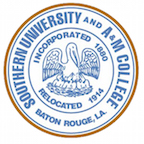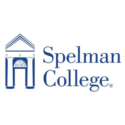 Southern University in Baton Rouge, Louisiana, is now offering researchers the opportunity to review its “Slave Narratives” archives on the website of the university’s John B. Cade Library. The archives are a series of letters and documents of interviews with slaves that focus on the thoughts of slaves about slave owners, abuse, clothing, religious life, superstitions and religion in their communities.
Southern University in Baton Rouge, Louisiana, is now offering researchers the opportunity to review its “Slave Narratives” archives on the website of the university’s John B. Cade Library. The archives are a series of letters and documents of interviews with slaves that focus on the thoughts of slaves about slave owners, abuse, clothing, religious life, superstitions and religion in their communities.
Eddie Hughes, director of Special Collections at the library stated that “prior to the narratives being available on the school library’s website, they were virtually inaccessible to those who did not work in the library. Although they did exist physically, the narratives were archived, yet unorganized, in boxes on the third floor of the library.”











I very interested in hearing from the very voices that went through that traumatic experience and survived to tell their personal stories as a living witness to these historical wrongs brought on them by the wrath of the dominant (arm) class.
Yeah, but you have to have an EBSCO login to access this database.
To Lisa Lee,
The Slave Narratives collection is accessible online and open to the general public. The web address is: http://www.lib.subr.edu – Click on the graphic Slave Narratives. – Then click the link Opinions Regarding Slavery.
How may I access this database?
I’m in Santa Fe, NM.
“Important User Information: Remote access to EBSCO’s databases is permitted to patrons of subscribing institutions accessing from remote locations for personal, non-commercial use. However, remote access to EBSCO’s databases from non-subscribing institutions is not allowed if the purpose of the use is for commercial gain through cost reduction or avoidance for a non-subscribing institution.”
Hello George,
I’m sorry I just saw your post on the Jrnl. of Blacks in Higher Education.
Our Slave Narratives collection is open to the public. To see the narratives click here: http://www.lib.subr.edu – Click on the graphic: Slaves Narratives – Then the page will reload then click on the link: Opinions Regarding Slavery.
Hello, are the narratives still available to the public? I would love to read them as to further my education on this part of history that is not taught in school. Thank you